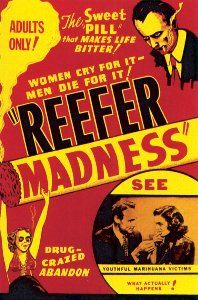Others feel wrath of police unions
By Steven Greenhut
FULLERTON — Many people were outraged this summer after a private investigator, with ties to a law firm that represents 120 police unions in California, made an apparently false police report that a Costa Mesa councilman stumbled out of a bar, appearing drunk, and was weaving all over the road as he drove home.
When police showed up at his door, Councilman Jim Righeimer was found stone cold sober. The clear goal of the phony call was to embarrass a lawmaker who had been leading the charge in his city for public employee pension reform, outsourcing services and other cost-saving measures.
Subsequently, officials in other cities revealed similarly disturbing tactics from their police unions.
And, despite the revelations, police unions continue to behave as before, trying to intimidate council members who refuse to go along with their demands for ever-higher pay and benefits, and protections for their members from oversight and accountability.
Two councilmen in Fullerton, Bruce Whitaker and Travis Kiger, are experiencing treatment similar to the Righeimer episode in Costa Mesa. The Fullerton police union is angry at the role those men played in demanding reform in the wake of the death of Kelly Thomas (pictured above), a schizophrenic homeless man fatally beaten by Fullerton officers in July 2011.
Pension reform
The unions also dislike Whitaker and Kiger’s call for pension reform, their consideration of a plan – common in Orange County and elsewhere — to shift police services from the city’s Police Department to the more cost-efficient Orange County Sheriff’s Department.
The private eye mentioned above had ties to the Upland law firm Lackie, Dammeier & McGill. The Register had reported on the negotiating “playbook” the lawyers had published on their website until the bad publicity resulting from the Righeimer episode. The playbook detailed how police unions should bully elected officials into submitting to their demands.
Although the Fullerton police union employs a different law firm for contract talks, it is following a similar blueprint.
As the Lackie firm website explained, a union “should be like a quiet giant in the position of, ‘do as I ask, and don’t piss me off.'” It detailed the “various tools available to an association to put political pressure on the decision makers.” The firm advises police to “storm city council” and have union members and supporters chastise targeted council members “for their lack of concern for public safety,” even though negotiations are over pay rather than safety.
The playbook even calls for the police to engage in dubious behavior — calling in sick (blue flu) even when not sick, and using the color of authority to scare residents (i.e., calling for unnecessary backup units) into thinking there is a crime problem in their neighborhood. The frightened residents will then, presumably, support giving the police more money.
Scary unions
In Fullerton, union members have repeatedly stormed City Council meetings.
The union has handed out free T-shirts and free hamburgers to residents who voice support for the union in council chambers.
Supporters have yelled at council members and leveled unsubstantiated charges designed to scare Fullerton residents into electing pro-union candidates.
They have sent out one campaign hit mailer after another. For instance, the union claims that the council’s failed vote to seek a bid from the Sheriff’s Department to take over policing the city amounted to “putting our families at risk,” a statement that would come as news to the sheriff and her deputies.
 Reminiscent of those “Reefer Madness” efforts from the 1930s, the union has transformed the council members’ irrelevant support for a statewide marijuana initiative into something ominously portrayed in mailers that proclaim, “Our neighborhoods could be full of marijuana dispensaries.” Even if the initiative passes statewide, Fullerton ordinances ban medical marijuana dispensaries. And there is no evidence dispensaries “jeopardize our families’ safety,” although I understand that police agencies in general are addicted to the federal cash that helps fund the drug war.
Reminiscent of those “Reefer Madness” efforts from the 1930s, the union has transformed the council members’ irrelevant support for a statewide marijuana initiative into something ominously portrayed in mailers that proclaim, “Our neighborhoods could be full of marijuana dispensaries.” Even if the initiative passes statewide, Fullerton ordinances ban medical marijuana dispensaries. And there is no evidence dispensaries “jeopardize our families’ safety,” although I understand that police agencies in general are addicted to the federal cash that helps fund the drug war.
Checkpoints
Kiger and Whitaker are freedom-oriented conservatives who oppose on constitutional grounds Fullerton’s DUI checkpoints, which has led the union to claim yet another assault of Fullerton’s tranquility.
I’ve driven through Fullerton during those infuriating checkpoints, forced to wait in lines on public streets as cops randomly poke around in everyone’s cars, so I am glad some council members question this intrusion.
These are typical campaign tactics, perhaps, but Kiger also talks about a police officer who makes a “repeated false assertion to the public that I smoke marijuana.” He also says an officer followed him in a patrol car around town in what the councilman considered a clear act of intimidation.
The officers claim the Fullerton City Council race is all about “public safety,” but the police union is backing a liberal candidate with no obvious commitment to actual safety issues, but who seems willing to support the pay and pension packages the union demands, and who was mostly silent during the Thomas incident.
“If I wasn’t able to contribute money, these councilmen wouldn’t be able to defend themselves against these union attacks,” said Tony Bushala, a local businessman and blogger who was the main supporter for a recall election in June against three union-allied council members. “The unions put out a hit mailer every day, which explains the importance of Proposition 32.” That is the statewide paycheck-protection initiative that would stop unions from using automatic payroll deductions to fund political campaigns.
Last week, I wrote about a new study revealing that, from 2005-10, pension costs to the state government have soared by 94 percent for “public safety” officials. People often ask me why the state is in such a fiscal mess, why city councils don’t implement reasonable reforms and why so many localities are considering bankruptcy.
One answer can be found in Costa Mesa, Fullerton and elsewhere. Most council members don’t have the courage or resources to stand up to their employee unions. Until the public clearly rejects such campaigns, neither public services nor public finances will improve.
Steven Greenhut is vice president of journalism for the Franklin Center for Government and Public Integrity. Write to him at: [email protected].
Related Articles
Big-bucks party inaugurates de Leon
Government in America increasingly resembles the 1978 comedy, “Animal House.” In this instance, it’s the scene where the Delta frat
Entire state government is broken
APRIL 9, 2010 “Democracy,” H.L. Mencken told us, “is the theory that the common people know what they want, and deserve
Colorado recall election a template for reclaiming liberty
June 11, 2013 By Katy Grimes The historic recall election underway in Colorado of Senate President John Morse is shaping




